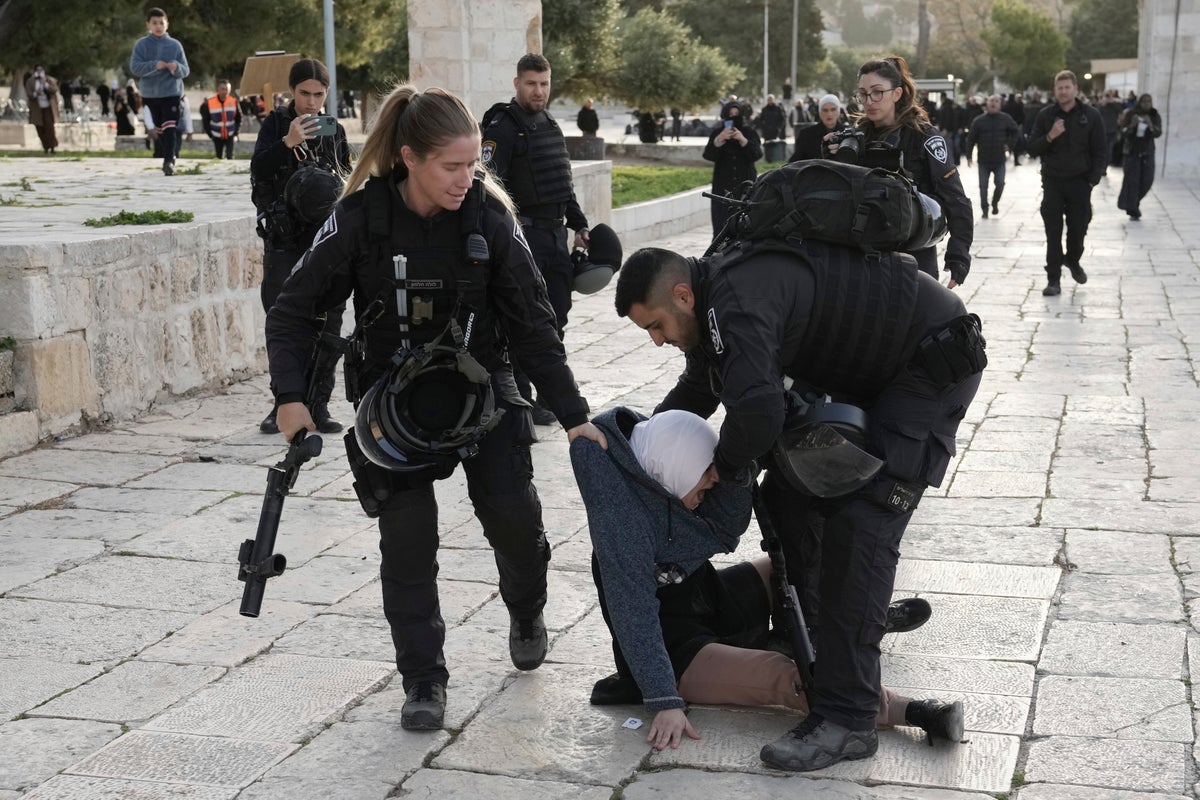
Jerusalem experienced a second night of violent unrest after Israel’s police raided the al-Aqsa mosque again, prompting clashes between security forces and worshippers.
Dozens of Palestinian worshippers barricaded themselves inside the Al-Aqsa mosque in the Old City’s compound on Wednesday night as Israeli police removed them using force.
The police entered the compound and tried to evacuate worshippers using stun grenades and firing rubber bullets, said staff of the Waqf organisation which manages the complex.
As the situation escalated, more worshippers gathered in the mosque, responding to calls by Waqf to pray inside overnight and reportedly threw objects at police, witnesses said. The Palestinian Red Crescent said six people were injured.
The Israeli police claimed “dozens of law-breaking juveniles” had fomented chaos by throwing rocks and other objects at officers and compelling police to act to restore “security, law and order”.
Videos emerging from the site showed armed troops in riot gear forcibly emptying the mosque of worshippers.
This was the second night in a row that the police raided the mosque in a move that drew widespread international criticism.
The violence has spread to more areas and tensions have risen, with Palestinian militant groups warning that further confrontation was coming.
The situation remained tense and led to cross-border exchange of fire in Gaza as Muslims marked the holy month of Ramadan and Jews began the weeklong Passover holiday.
The UN Security Council is set to hold an emergency session on Thursday to discuss the violence, according to diplomats. The closed-door meeting was called at the request of the United Arab Emirates and China, diplomats told the Reuters news agency.
Riyad Mansour, the Palestinian ambassador to the UN, condemned Israeli action at the Al-Aqsa mosque in a press conference on Wednesday, saying it is the “exclusive right of the Palestinian Muslims” to practise their religious traditions there.
“It is the right of the Palestinian Muslim worshippers to exercise their religious duties and prayers in this holy month of Ramadan and in any other time in this holy Aqsa Mosque,” Mr Mansour said.
The Israeli occupying authority has no right whatsoever to tell people when to pray and when not to pray.”— Riyad Mansour, the Palestinian ambassador to the United Nations
Israeli prime minister Benjamin Netanyahu said the country was working to “calm tensions” at the holy site.
The mosque sits in a hilltop compound sacred to both Jews and Muslims and conflicting claims over it have led to violence before. It is the third-holiest site in Islam and stands in a spot known to Jews as the Temple Mount, the holiest site in Judaism.
Additional reporting by agencies







